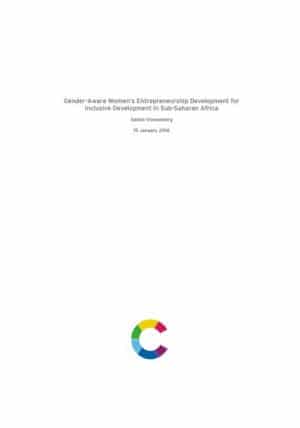
In INCLUDE’s thematic approach to inclusive development, special attention is given to opportunities for women. INCLUDE and the Gender Resource Facility (GRF) teamed up to gather and analyse knowledge on what works best for women in enterprise promotion and social protection.
This paper by Saskia Vossenberg aims to contribute to the debate on women’s entrepreneurship development (WED) by discussing the importance and practicalities of gender-aware WED, also in relation to the questions asked during the INCLUDE working conference ‘Building policy-knowledge communities for inclusive development in Africa’ in Nairobi. Gender-aware WED recognizes the gendered risks and uncertainties in which women operate their businesses and assists women in coping with these insecurities at home, in the community and in the business environment. In addition, it strives to create a level playing field by ensuring access to, and control over, resources and opportunities for all entrepreneurs, regardless of business type, industry choice, gender, age, health status, location or ethnicity.










